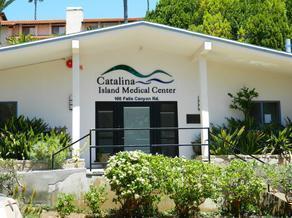
The City Council on Aug. 4 unanimously approved placing a measure on the November ballot to impose a special tax on passengers to Avalon and to boats mooring in Avalon.
If approved, the money would go to funding the state-mandated replacement of the Catalina Island Medical Center.
The projected cost: less than $1,000, according to the staff report by City Manager Denise Radde.
According to City Attorney Scott Campbell, this would be the lesat expensive option.
In related news, there will be a virtual town hall about the ballot measure at 5 p.m., Tuesday, Aug. 11. To register, visit SaveCIMC.org.
Councilmember Yesenia De La Rosa asked if there was a way to get informaiton about the measure to members of the Spanish-speaking community.
Councilmember Cinde MacGugan-Cassidy pointed out that the proposed 2020 hospital tax measure contains a sunset clause. According to Section 10-2.611 of the proposed ordinance, the tax will end either at the end of a 40 year loan , when costs of cocnstruction are paid or in the event hospital construction is abandoned.
In 2018, voters rejected an initiative known as Measure T to tax visitors $1 to pay for a new hospital. The vote was 497 against the transit tax and 392 in favor. A lack of a sunset clause was one of the factors in that measure’s defeat.
The passenger tax
The tax would start at 50 cents, per passenger, according to the report.
“The tax would not apply to vessel or aircraft employees nor would it apply to passengers who have purchased a ticket or secured passage prior to April 1, 2022,” according to the report.
The tax would increase to $1 per passenger on April 1, 2023 and to $2 per passenger on or after April 1, 2024.
“If approved, the Measure, among other things, would establish a special tax for a period of up to approximately 40 years for tickets purchased or passage secured on or after April 1, 2022, for each passenger landing or discharging in the City by way of cruise ship, cross-channel carrier or aircraft carrying passengers for hire or charter,” according to the staff report by City Manager Denise Radde.
The mooring tax
The mooring tax would be $1 a day per vessel. The mooring tax would also start April 1, 2022.
“The tax would apply for each day a vessel rents a mooring, regardless of whether the vessel departs and returns to the mooring during the rental. This tax would not apply to persons for whom the City is their primary residence, nor would it apply to individuals who own moorings or lease them on an annual basis,” according to the report.
“The Measure provides that revenues generated from these special taxes would be deposited into a separate account and could only be used to (i) finance infrastructure to implement new programs at the Catalina Island Medical Center (“CIMC”), (H) finance a new medical center to replace CIMC and (Hi) to pay the costs of imposing and administering these taxes,” according to Radde’s report.
The council that night also received and filed verification of signatures on a petition to put a tax on passengers to Avalon. The Los Angeles County Registrar-Recorder’s Office verified 388 signatures on the petition.
The state government has given hospitals throughout California until 2030 to upgrade hospitals to meet earthquake safety standards.








